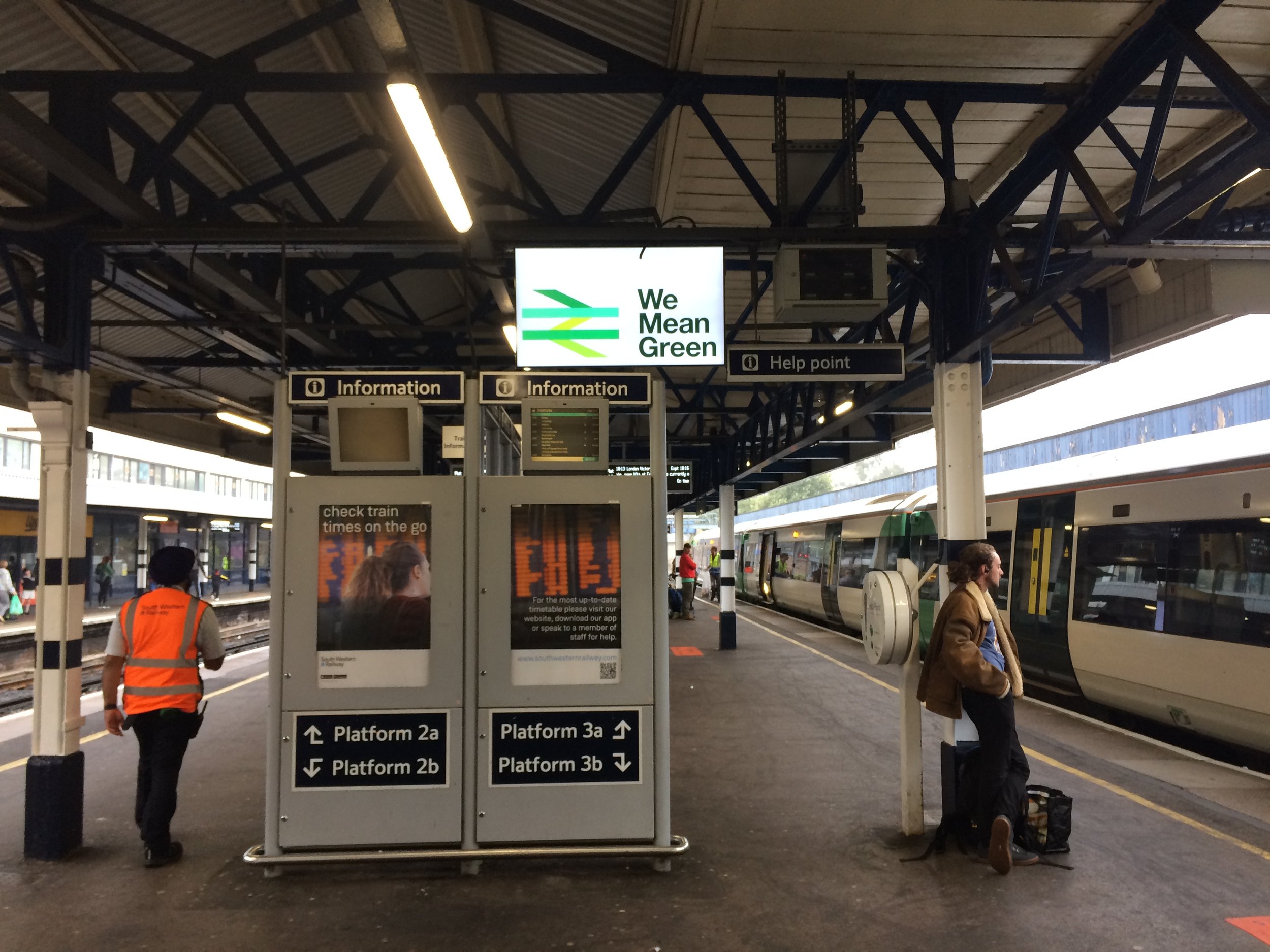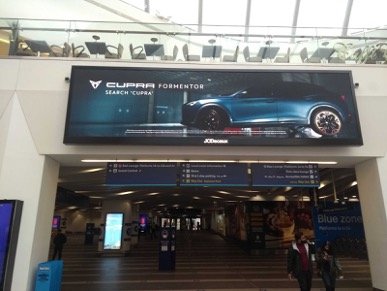Letter: A low carbon advertising policy for Network Rail
12th September 2022
Dear Andrew Haines and Caroline Murdoch,
Re: a low carbon advertising policy for Network Rail
On behalf of a group of independent organisations concerned about the impact of advertising on the climate, we applaud your leadership in decarbonising the rail industry and in aiming to become net zero carbon by 2050. We believe there are some simple steps that Network Rail could take to constructively reinforce your goals that would also remove public confusion and the potential appearance of policy contradictions. We are concerned, for example, that this clearly stated climate goal is undermined by Network Rail’s current approach to advertising on its sites, which allows the promotion of highly polluting products such as fossil-fuel powered cars, air travel and fossil fuel companies. We believe this threatens to undermine Network Rail’s climate pledge, and also is in direct contradiction with the company’s aim (and business interest) of promoting train travel over other, more polluting transport modes, such as cars and aviation.
Over the last months we have sent a number of Freedom of Information requests enquiring about the amount of high-carbon adverts promoted on Network Rail operating sites and the company’s policy on advertising. Network Rail’s ‘code of acceptance’ which informs what is permitted to be advertised features a list of 16 criteria not approved by the company. We believe these could be extended to restrict advertising for high-carbon goods and services (ie. fossil companies, fossil-powered engines and air travel) at the 20 train stations Network Rail owns and operates across the country.
For the sake of illustrating this point, between June 2021 and July 2022, for example, we spotted an advert for a highly-polluting SUV (Cupra, Formentor model) and one for British package holiday and tour agency Jet2Holidays promoting air travel to Turkey, both located at the entrance of Birmingham New Street train station (see images 1 and 2 below). Both adverts are clearly at odds with Network Rail’s commitment to promote sustainable forms of transport and with Network Rail’s latest green promotional campaign (see image 3) to swap cars for trains. They work against Network Rail’s objective of encouraging travellers to choose the train and by doing so hinder necessary behavioural shifts to low-carbon modes of transport.
1. SUV advert - Birmingham New St Station
3. Network Rail advert - Balham, London
2. Jet2Holidays ad - Birmingham New St.
It was also disappointing to learn from a Channel 4 News report that Network Rail advised against some of the adverts displayed during the November 2021 COP26 talks to promote climate action because they were deemed to be “politically motivated” and against point five of the advertising Code of Acceptance (“An advertisement will not be approved for, or permitted to remain on display, if:
5. It is of political nature calling for the support of a particular viewpoint, policy or action…”). We are concerned that a disproportionate level of negative scrutiny is being placed on positive climate campaigns, leading to their rejection, compared to a lack of scrutiny on the motive and consequences of advertising for highly polluting products. This, we believe, is inconsistent with Network Rail’s ambitious plan to cut carbon emissions across its network and its leading ‘We Mean Green’ commitments to promote rail travel.
Over the last few years, several progressive steps have been taken to limit harmful forms of advertising, including those for junk food and high-carbon products. In 2018 the Transport for London authority introduced a ban on HFSS (high in fat, salt and sugar) products on its network which has led to positive impacts so far in reducing obesity cases. In early 2021, Amsterdam became the world’s first local authority to commit to end all forms of fossil advertising and sponsorship activities. Amsterdam’s metro operator chose to follow suit by voluntarily banning ads for short-haul flights and fossil-fueled cars. This decision is being celebrated as an important step in the right direction and setting a new benchmark for other transport operators around the world to progress from. Several local authorities across the UK have also taken steps towards adopting low-carbon and ethical advertising policies including, Liverpool, Norwich and North Somerset.
There is a growing evidence base to support the link between adverts for certain products and their increased demand. When it comes to SUV vehicles (for example), advertising was found systematically to be correlated with an increased demand for these products. In other words, advertising has a substantial impact on individual choices. Moreover, research from Knox College (USA) found that green messages had no effect on people’s behaviours while being drowned out by adverts for highly polluting products - in this case SUV vehicles. This evidence suggests that Network Rail would strongly benefit from adding high-carbon products and activities, including those for petrol, diesel and hybrid cars, air travel and fossil fuel companies, to the list of advertisements not currently approved for by Network Rails’ Code of Acceptance. Such a policy would reinforce the company’s leadership position on climate and facilitate the necessary modal shift towards low-carbon transport.
We would like to know whether you will consider this suggested policy change and warmly welcome the opportunity to meet with you to discuss these proposals.
Yours sincerely,
Signatories
Charlotte Gage, Adfree Cities UK
Robbie Gillett, Badvertising
Andrew Simms, Rapid Transition Alliance
Leo Murray, Possible
Emilie Tricarico, New Weather Institute
David Boyle, New Weather Institute




